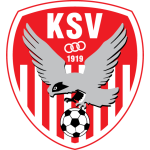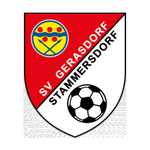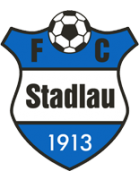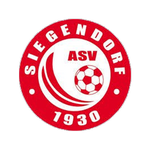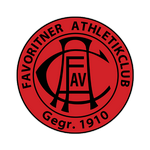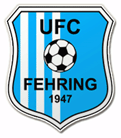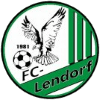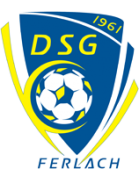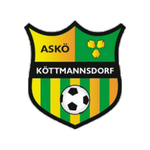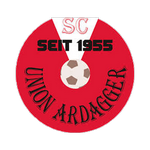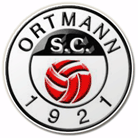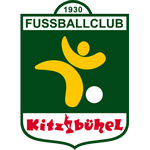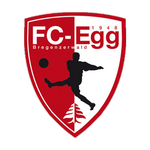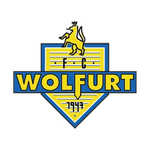Austria (League) - AI Football Predictions Online
| AI | ||
|---|---|---|
 1. Liga 1. Liga | ||
| 2025-04-04 12:00 |
| |
| 2025-04-04 12:00 |
| |
| 2025-04-04 12:00 |
| |
| 2025-04-04 12:00 |
| |
| 2025-04-05 08:30 |
| |
| 2025-04-05 08:30 |
| |
| 2025-04-05 14:00 |
| |
| 2025-04-06 04:30 |
| |
| 2025-04-11 12:00 |
| |
| 2025-04-11 12:00 |
| |
| 2025-04-11 12:00 |
| |
| 2025-04-11 12:00 |
| |
| 2025-04-11 12:00 |
| |
| 2025-04-11 12:00 |
| |
| 2025-04-11 14:30 |
| |
| 2025-04-13 04:30 |
| |
 Austria: Landesliga: Wien Austria: Landesliga: Wien | ||
| 2025-04-04 12:00 |
| |
| 2025-04-04 12:00 |
| |
| 2025-04-04 12:00 |
| |
| 2025-04-05 08:00 |
| |
| 2025-04-05 09:00 |
| |
| 2025-04-05 09:30 |
| |
| 2025-04-06 04:30 |
| |
| 2025-04-06 05:00 |
| |
| 2025-04-11 12:00 |
| |
| 2025-04-11 12:30 |
| |
| 2025-04-12 08:00 |
| |
| 2025-04-12 09:30 |
| |
| 2025-04-12 10:00 |
| |
| 2025-04-12 10:00 |
| |
| 2025-04-13 04:15 |
| |
| 2025-04-13 04:30 |
| |
 Austria: Regionalliga: Ost Austria: Regionalliga: Ost | ||
| 2025-04-04 12:00 |
| |
| 2025-04-04 13:00 |
| |
| 2025-04-04 13:00 |
| |
| 2025-04-04 13:30 |
| |
| 2025-04-04 13:30 |
| |
| 2025-04-04 13:30 |
| |
| 2025-04-04 13:30 |
| |
| 2025-04-05 08:00 |
| |
| 2025-04-11 12:30 |
| |
| 2025-04-11 13:00 |
| |
| 2025-04-11 13:00 |
| |
| 2025-04-11 13:00 |
| |
| 2025-04-11 13:30 |
| |
| 2025-04-11 13:30 |
| |
| 2025-04-11 13:30 |
| |
| 2025-04-12 10:00 |
| |
 Austria: Landesliga: Steiermark Austria: Landesliga: Steiermark | ||
| 2025-04-04 12:30 |
| |
| 2025-04-04 13:00 |
| |
| 2025-04-04 13:00 |
| |
| 2025-04-04 13:00 |
| |
| 2025-04-04 13:00 |
| |
| 2025-04-04 13:00 |
| |
| 2025-04-04 13:00 |
| |
| 2025-04-05 10:00 |
| |
| 2025-04-05 10:00 |
| |
| 2025-04-11 13:00 |
| |
| 2025-04-11 13:00 |
| |
| 2025-04-12 10:00 |
| |
| 2025-04-12 10:00 |
| |
| 2025-04-12 10:00 |
| |
| 2025-04-12 10:00 |
| |
| 2025-04-12 11:00 |
| |
| 2025-04-12 13:00 |
| |
 Austria: Landesliga: Burgenland Austria: Landesliga: Burgenland | ||
| 2025-04-04 13:00 |
| |
| 2025-04-04 13:30 |
| |
| 2025-04-05 10:00 |
| |
| 2025-04-05 11:00 |
| |
| 2025-04-05 11:00 |
| |
| 2025-04-05 12:00 |
| |
| 2025-04-06 10:30 |
| |
| 2025-04-06 10:30 |
| |
| 2025-04-11 13:30 |
| |
| 2025-04-11 13:30 |
| |
| 2025-04-11 13:30 |
| |
| 2025-04-11 13:30 |
| |
| 2025-04-11 13:30 |
| |
| 2025-04-12 10:00 |
| |
| 2025-04-12 11:00 |
| |
| 2025-04-12 12:00 |
| |
 Austria: Landesliga: Kärnten Austria: Landesliga: Kärnten | ||
| 2025-04-04 13:00 |
| |
| 2025-04-04 13:00 |
| |
| 2025-04-04 13:00 |
| |
| 2025-04-05 09:00 |
| |
| 2025-04-05 10:00 |
| |
| 2025-04-06 08:30 |
| |
| 2025-04-06 09:00 |
| |
| 2025-04-11 12:30 |
| |
| 2025-04-11 12:30 |
| |
| 2025-04-11 13:00 |
| |
| 2025-04-11 13:00 |
| |
| 2025-04-11 13:00 |
| |
| 2025-04-12 08:00 |
| |
| 2025-04-13 09:00 |
| |
| 2025-04-16 20:00 |
| |
| 2025-04-17 12:30 |
| |
| 2025-04-17 12:30 |
| |
| 2025-04-17 13:00 |
| |
| 2025-04-17 13:00 |
| |
 Austria: Landesliga: Oberösterreich Austria: Landesliga: Oberösterreich | ||
| 2025-04-04 13:00 |
| |
| 2025-04-04 13:00 |
| |
| 2025-04-04 13:00 |
| |
| 2025-04-04 13:00 |
| |
| 2025-04-05 10:00 |
| |
| 2025-04-05 10:30 |
| |
| 2025-04-05 10:30 |
| |
| 2025-04-05 10:30 |
| |
| 2025-04-11 13:00 |
| |
| 2025-04-11 13:00 |
| |
| 2025-04-11 13:00 |
| |
| 2025-04-11 13:30 |
| |
| 2025-04-11 13:30 |
| |
| 2025-04-12 08:30 |
| |
| 2025-04-12 10:30 |
| |
| 2025-04-12 10:30 |
| |
| 2025-04-17 13:00 |
| |
 Austria: Landesliga: Salzburg Austria: Landesliga: Salzburg | ||
| 2025-04-04 13:00 |
| |
| 2025-04-04 13:00 |
| |
| 2025-04-04 13:00 |
| |
| 2025-04-05 10:00 |
| |
| 2025-04-05 10:00 |
| |
| 2025-04-05 10:00 |
| |
| 2025-04-05 10:00 |
| |
| 2025-04-05 10:00 |
| |
| 2025-04-05 10:00 |
| |
| 2025-04-05 10:00 |
| |
| 2025-04-05 10:00 |
| |
| 2025-04-12 10:00 |
| |
| 2025-04-12 10:00 |
| |
| 2025-04-12 10:00 |
| |
| 2025-04-12 10:00 |
| |
| 2025-04-12 10:00 |
| |
| 2025-04-12 10:00 |
| |
| 2025-04-12 10:00 |
| |
| 2025-04-12 10:00 |
| |
| 2025-04-16 11:30 |
| |
| 2025-04-16 11:30 |
| |
| 2025-04-16 11:30 |
| |
| 2025-04-16 11:30 |
| |
| 2025-04-16 11:30 |
| |
| 2025-04-16 11:30 |
| |
| 2025-04-16 11:30 |
| |
| 2025-04-16 11:30 |
| |
 Austria: Regionalliga: Mitte Austria: Regionalliga: Mitte | ||
| 2025-04-04 13:00 |
| |
| 2025-04-04 13:00 |
| |
| 2025-04-04 13:00 |
| |
| 2025-04-04 13:00 |
| |
| 2025-04-04 13:00 |
| |
| 2025-04-04 13:00 |
| |
| 2025-04-05 09:00 |
| |
| 2025-04-05 13:00 |
| |
| 2025-04-11 13:00 |
| |
| 2025-04-11 13:00 |
| |
| 2025-04-11 13:00 |
| |
| 2025-04-11 13:00 |
| |
| 2025-04-11 13:00 |
| |
| 2025-04-11 13:00 |
| |
| 2025-04-11 13:00 |
| |
| 2025-04-12 11:00 |
| |
| 2025-04-17 13:00 |
| |
 Austria: Regionalliga: West Austria: Regionalliga: West | ||
| 2025-04-04 13:00 |
| |
| 2025-04-05 08:00 |
| |
| 2025-04-05 09:00 |
| |
| 2025-04-05 11:00 |
| |
| 2025-04-05 11:30 |
| |
| 2025-04-05 12:00 |
| |
| 2025-04-06 04:30 |
| |
| 2025-04-06 05:00 |
| |
| 2025-04-11 13:00 |
| |
| 2025-04-12 09:30 |
| |
| 2025-04-12 10:00 |
| |
| 2025-04-12 10:00 |
| |
| 2025-04-12 11:00 |
| |
| 2025-04-12 11:00 |
| |
| 2025-04-13 08:00 |
| |
| 2025-04-13 09:00 |
| |
 Bundesliga Bundesliga | ||
| 2025-04-04 13:30 |
| |
| 2025-04-05 11:00 |
| |
| 2025-04-05 11:00 |
| |
| 2025-04-05 11:00 |
| |
| 2025-04-06 08:30 |
| |
| 2025-04-06 11:00 |
| |
| 2025-04-11 13:30 |
| |
| 2025-04-12 11:00 |
| |
| 2025-04-12 11:00 |
| |
| 2025-04-12 11:00 |
| |
| 2025-04-13 08:30 |
| |
| 2025-04-13 11:00 |
| |
 Austria: Landesliga: Niederösterreich Austria: Landesliga: Niederösterreich | ||
| 2025-04-04 13:30 |
| |
| 2025-04-04 13:30 |
| |
| 2025-04-04 13:30 |
| |
| 2025-04-04 13:30 |
| |
| 2025-04-04 13:30 |
| |
| 2025-04-04 13:30 |
| |
| 2025-04-05 11:00 |
| |
| 2025-04-05 12:00 |
| |
| 2025-04-11 13:30 |
| |
| 2025-04-11 13:30 |
| |
| 2025-04-11 13:30 |
| |
| 2025-04-11 14:00 |
| |
| 2025-04-12 09:00 |
| |
| 2025-04-12 10:30 |
| |
| 2025-04-12 10:30 |
| |
| 2025-04-13 05:00 |
| |
 Austria: Landesliga: Tirol Austria: Landesliga: Tirol | ||
| 2025-04-04 13:30 |
| |
| 2025-04-05 08:00 |
| |
| 2025-04-05 08:30 |
| |
| 2025-04-05 10:00 |
| |
| 2025-04-05 10:00 |
| |
| 2025-04-05 20:00 |
| |
| 2025-04-06 11:00 |
| |
| 2025-04-11 13:00 |
| |
| 2025-04-12 08:00 |
| |
| 2025-04-12 10:30 |
| |
| 2025-04-12 20:00 |
| |
| 2025-04-13 04:30 |
| |
| 2025-04-13 05:00 |
| |
| 2025-04-13 11:00 |
| |
 Landesliga Landesliga | ||
| 2025-04-05 10:00 |
| |
| 2025-04-05 10:00 |
| |
| 2025-04-05 11:00 |
| |
| 2025-04-05 11:00 |
| |
| 2025-04-06 10:00 |
| |
| 2025-04-06 10:00 |
| |
| 2025-04-06 10:30 |
| |
| 2025-04-12 20:00 |
| |
| 2025-04-12 20:00 |
| |
| 2025-04-12 20:00 |
| |
| 2025-04-12 20:00 |
| |
| 2025-04-12 20:00 |
| |
| 2025-04-12 20:00 |
| |
| 2025-04-12 20:00 |
| |
A Deep Dive into Austrian Football: The Bundesliga and Beyond
Austrian football, often overshadowed by its more illustrious neighbors like Germany and Italy, boasts a rich history and a passionate following. The Austrian Bundesliga, the premier football league in the country, is home to some of the most storied clubs in Central Europe. With a unique blend of tradition, competitive spirit, and a growing reputation for nurturing young talent, Austrian football presents an intriguing landscape for both the ardent fan and the impartial observer alike.
The Origins of Austrian Football
Football in Austria dates back to the late 19th century, with the establishment of clubs such as SK Rapid Wien and FK Austria Wien. These clubs laid the groundwork for what would become a vibrant football culture. The Austrian Football Association (ÖFB) was founded in 1904, and the first league was officially organized shortly thereafter. Austrian teams have historically been known for their technical skill and tactical awareness, traits that have been admired across Europe.
The league itself has evolved significantly, with the Bundesliga officially forming in 1974. This transition marked a new era, consolidating the top teams into a more competitive format. Over the years, the league has produced a wealth of talent, contributing players to top European teams and national squads. Icons such as Franz Beckenbauer and more recently, David Alaba, have roots in Austrian football, underlining the league's role as a breeding ground for world-class talent.
The Structure of the Bundesliga
The Austrian Bundesliga consists of 12 teams, each vying for the coveted title and a place in European competitions. The league operates on a traditional round-robin format, with each team playing one another twice, home and away, before the league splits into a championship and relegation group. This structure not only intensifies the competition but also keeps the fight for survival and success alive until the very end of the season.
Among the most successful clubs in the league's history are Rapid Wien and Austria Wien, each boasting a rich history and a loyal fan base. Rapid, with its green and white colors, has a storied rivalry with Austria Wien, known as the Vienna Derby—a match that ignites the passion of the fans, showcasing the deep-seated local pride and animosity. The atmosphere during these matches is electric, a testament to the fervor that Austrian fans bring to the sport.
Recent Developments and International Presence
In recent years, Austrian clubs have made notable strides in European competitions. Teams like Red Bull Salzburg have consistently performed well in the UEFA Champions League and Europa League, showcasing their ability to compete at the highest level. The club's model, which emphasizes youth development and strategic scouting, has paid dividends, with numerous players making significant impacts on the international stage.
In particular, the emergence of players like Erling Haaland and Sadio Mané, who honed their skills at Salzburg before moving to larger clubs, has put Austrian football on the map. The club's success in the Champions League, where they have often progressed to the knockout stages, has elevated their status and provided a platform for further growth.
Cultural Significance and Fan Engagement
Austrian football is not just about the game; it is deeply intertwined with the cultural fabric of the nation. Football matches serve as social events, drawing families and friends together, creating a sense of community. The atmosphere in the stadiums, particularly in Vienna, is one of camaraderie and passion. Fans display unwavering loyalty, often traveling great distances to support their teams.
The influence of football in Austria extends beyond the pitch, impacting local economies and fostering a sense of national pride. Major tournaments, such as the UEFA European Championship or World Cup qualifiers, see the entire country rally behind the national team, creating a unifying force that transcends regional differences.
The Future of Austrian Football
The future of Austrian football seems bright, with continued investment in grassroots programs and infrastructure. Clubs are increasingly focusing on developing young players and incorporating advanced analytics into training regimes. This proactive approach is essential for maintaining competitiveness on the international stage and ensuring that Austrian football continues to evolve.
Moreover, with the rise of digital platforms and global viewership, Austrian football has the potential to reach a broader audience, showcasing its unique style and flair. As clubs engage with fans through social media and innovative marketing strategies, the league is poised to expand its following, drawing in new supporters from around the globe.
Conclusion
In summary, Austrian football is a mosaic of history, passion, and potential. The Bundesliga stands as a testament to the country’s rich sporting heritage, while its clubs and players continue to make waves on the international scene. As the sport grows in popularity and sophistication, Austrian football remains a vibrant and essential part of the European football landscape.
 English
English  Español
Español  Italiano
Italiano  Deutsch
Deutsch  Polski
Polski  Português
Português  Français
Français  Nederlands
Nederlands  Svenska
Svenska  Türkçe
Türkçe  Hrvatski
Hrvatski 

